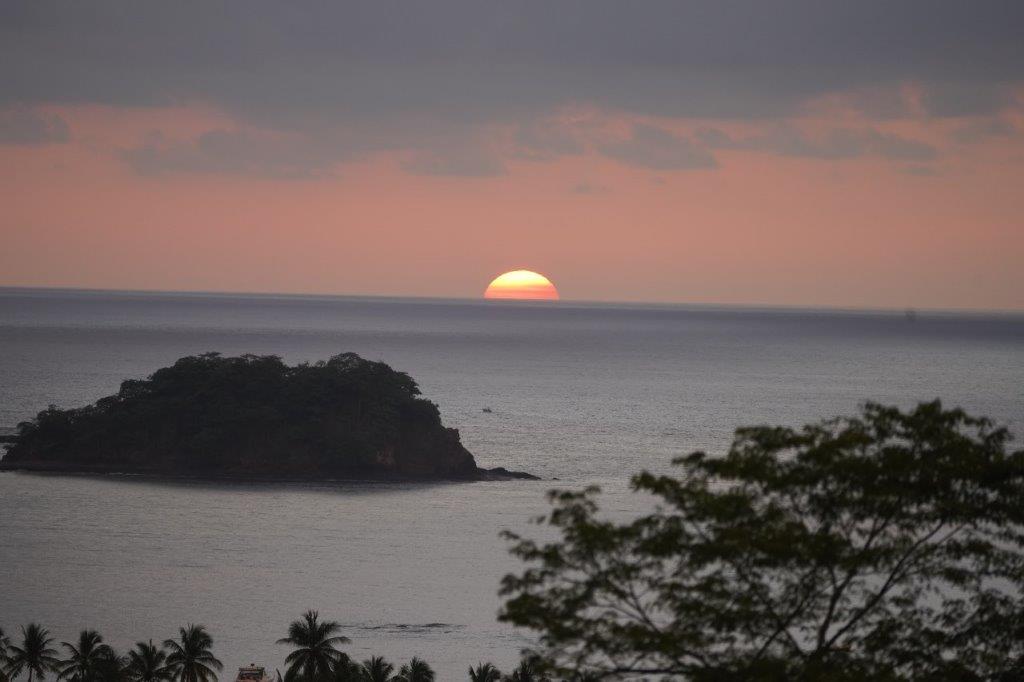


Have A Question For Us? Scan The QR Code Below To Send Us A Note

What is it like living in Costa Rica?
The age-old question about moving out of the country of your birth and “taking the plunge”. I spent a few years, well before I made the decision to make Costa Rica my home, looking around various parts of the world. I made multiple trips to CR before making the leap. My motivations won’t be the same as others, so the only recommendation I have is for you to visit and experience it for yourself.
Is it safe in Costa Rica
Every country that I have visited over 40 years of flying airplanes has its big cities and rural communities and very different conditions concerning safety and crime.In CR, I have found that the one “big city”, San Jose, is just like any big city in the world. Some areas are safe, and others are less safe. The Guanacaste region of CR is the Northwest province of the country and it is 90 percent rural and small towns and 10 percent tourist and ex-pat areas. I have never felt unsafe in any part of this area. There are plenty of areas that are not as economically healthy as the tourist towns but the only crime I have heard of in my dozen years being here are property crimes and crimes of opportunity. Don’t leave your cell phone, laptops, or purses laying out in the open unattended and you may never experience any issues. Lock your bike up, lock your doors and get security cameras are the most effective deterrents.
What is the primary language in Costa Rica?
The country language is Spanish, but it’s Latin American Spanish so you may find differences from whatever Spanish you may have learned. The tourist towns have plenty of English-speaking employees and I have found it easy to learn just enough not to sound too “gringo”.
What is the currency in Costa Rica?
The currency is Colones. The Colone vs. USD right now is approximately 600 Colones to 1 USD. The currency comes in 1000, 2000, 10000, and 20000 notes as well as various coins up to 500 colones. It is fun to keep up with your dinner and bar tabs but most places will give you the option of paying in USD. When you ask for “La quenta” (your bill) it will usually include the final numbers in both Colones and USD. Be aware that if you pay in USD, you get the exchange rate that the business has established for their services (it may not be the best rate available). La quenta will show you the 13% tax that comes on almost every item and service you pay for in CR as well as most places automatically add a 10% “service” cost. The service cost is their tip and most patrons are fine with adding some more tip to get them to about 15-20%. Just my opinion but the wages for service employees is pretty low, so tipping 20% is my personal minimum. To make it more complicated, you can’t always add a tip to your credit card due to what bank the vendor uses, so it’s a good idea to keep some colones in your pocket to hand to your server. Speaking of credit/debit cards; most businesses will take credit/debit for payment and all the national banks have ATM machines and they handle US and Canadian debit cards for cash disbursement just fine.
Is it affordable to live in Costa Rica?
Another of those questions should be answered with “that depends”. In my experience, the day-to-day expenses are not much different than you may spend “back home” IF you want to eat, drink, and exist like your home country. The difference is that the local food is great and inexpensive but many of us want to eat like Ruth Chris or Lee Ann Chin. You can eat like you at home, but it will cost like home. Fuel is pretty much a fixed price everywhere in the country and is cheaper than in Europe but more than in the US and Canada (depending on today’s inflation rates in those places). The good news is that you will not drive as much as back home. The “inexpensive” nature of Costa Rica is the overhead expenses that we are used to paying. Property taxes are very low, one fixed tax rate for goods and services of 13% may seem high but there are no state/province/city taxes ever added on. An ex-pat will not have any taxes on his or her income or investments back home.
Can I work in Costa Rica?
Generally speaking, no. But you can open a business, buy a business to operate, and create jobs for locals with very little restriction. If you actually want to work as an employee, you must become a resident.
Can you own real estate in Costa Rica?
Yes!!! Costa Rica is one of the very few places you can be a full owner just like the locals. There is no requirement to become a resident and there are no restrictions on who can own property. There are a few restrictions concerning some properties that are on the beach or in a maritime zone. These always need to be addressed but are not onerous.
What is the difference between being a citizen and a resident in Costa Rica?
The only practical difference between a resident and a citizen in Costa Rica is that as a resident you are not eligible to vote in elections. There are benefits to becoming a resident that is covered in other FAQs.
How long can I stay (visa) in Costa Rica?
As a non-resident you are limited to either: the date that you told the immigration officer at the airport as your departure date OR 90 days, whichever is earlier. In other words, you cannot stay longer than 90 days in a given visit but all it takes to reset the 90-day clock is to leave the country just long enough to go through immigration and get a new passport stamp. Once you become a temporary or permanent resident the restriction is gone.
Can I ship all my belongings from the US/Canada?
Yes. There are multiple shipping companies that will ship door-to-door from almost anywhere into CR. You will want to get estimated import tax info from your shipping company and, more importantly, have a lot of patience. Transit times and the time your shipment sits in customs have some big variables. If you need your goods in two months, ship them 3 to 4 months out. You can ship whole and partial shipping containers with furniture and cars as well as smaller pallets.
Can I shop for everything I need to live in Costa Rica?
In my opinion, yes. But it is more complicated than in the US or Canada. Just since I’ve been visiting and living in Costa Rica over the past 12 years, there has been a large increase in the availability of goods. Bear in mind, Costa Rica manufactures almost nothing. This country of a large farm with a side hustle of beautiful rain forests and volcanos and beaches that attract tourists from around the world. That is the income basis for the people of CR. That means that nearly everything is imported from other countries and will incur duties and taxes to bring them into the stores and homes of those living here. There are always some things that are hard to find, but it is a very robust economy.
What are the income tax rates in Costa Rica?
If you make money in Costa Rica as a business owner or thru renting out your property when you aren’t using it, you must collect a 13% tax on all sales and services and report it (and pay it) to the Hacienda (banking authority). This is the main source of governmental income in CR. If you are a business owner and creating an income, the general income tax is 17%. None of this is applicable to your income or retirement from your home country.





